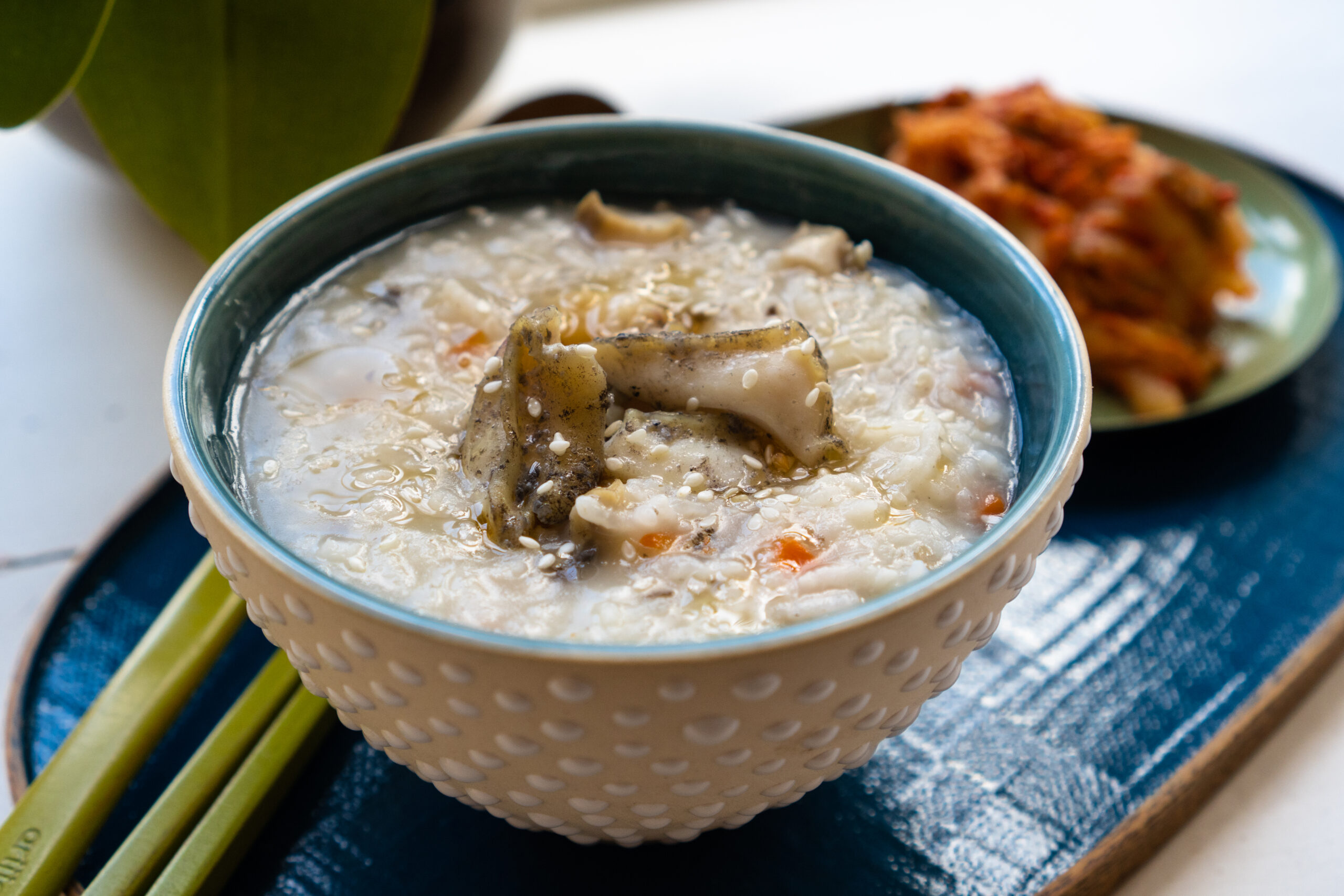nyssenate31.com – Jeonbokjuk, or abalone porridge, is a beloved dish in Korean cuisine known for its subtle flavors and nourishing qualities. A dish that is both a comfort food and a gourmet delight, Jeonbokjuk is traditionally enjoyed for its health benefits and luxurious taste. This article explores the origins, preparation, and cultural significance of this delightful porridge.
Origins and Cultural Significance
Abalone, a type of shellfish, has been highly valued in Korean cuisine for centuries due to its rarity and nutritional benefits. Historically, it was considered a delicacy reserved for the royal court or special occasions. Today, Jeonbokjuk remains a popular dish, especially in regions like Jeju Island, where fresh abalone is abundant.
Jeonbokjuk is often consumed during recovery from illness due to its easy digestibility and nutrient-rich profile. It is also a staple during festive occasions and family gatherings, embodying the spirit of comfort and hospitality in Korean culture.
Ingredients and Preparation
The key ingredients of Jeonbokjuk include abalone, rice, sesame oil, and sometimes a light seasoning of soy sauce or salt. The simplicity of the ingredients allows the natural flavors of the abalone to shine.
Steps to Make Jeonbokjuk
- Cleaning the Abalone: Start by thoroughly cleaning the abalone. Remove the shell and guts, then thinly slice the flesh to ensure even cooking.
- Cooking the Rice: Rinse and soak short-grain rice. This step is crucial for achieving the desired creamy texture of the porridge.
- Sautéing the Abalone: In a pot, heat sesame oil and gently sauté the sliced abalone. This enhances the abalone’s flavor and imparts a nutty aroma to the porridge.
- Simmering the Porridge: Add the soaked rice to the pot with the sautéed abalone. Pour in water or a light broth and simmer over low heat, stirring occasionally until the rice breaks down and the mixture thickens. This process can take about an hour.
- Seasoning and Serving: Season the porridge with a pinch of salt or a splash of soy sauce, according to taste. Garnish with chopped scallions or sesame seeds for added flavor and visual appeal.
Nutritional Benefits
Jeonbokjuk is not only delicious but also packed with nutrients. Abalone is rich in protein, vitamins, and minerals like iron and calcium. The porridge is low in calories and fat, making it a healthy choice for those looking to enjoy a balanced meal.
Conclusion
Jeonbokjuk is a timeless dish that continues to capture the hearts of many with its comforting texture and rich taste. Whether enjoyed as a healing meal or a luxurious treat, abalone porridge remains a testament to the culinary artistry of Korean cuisine. Its enduring popularity is a reflection of its unique ability to nourish the body and soul.
